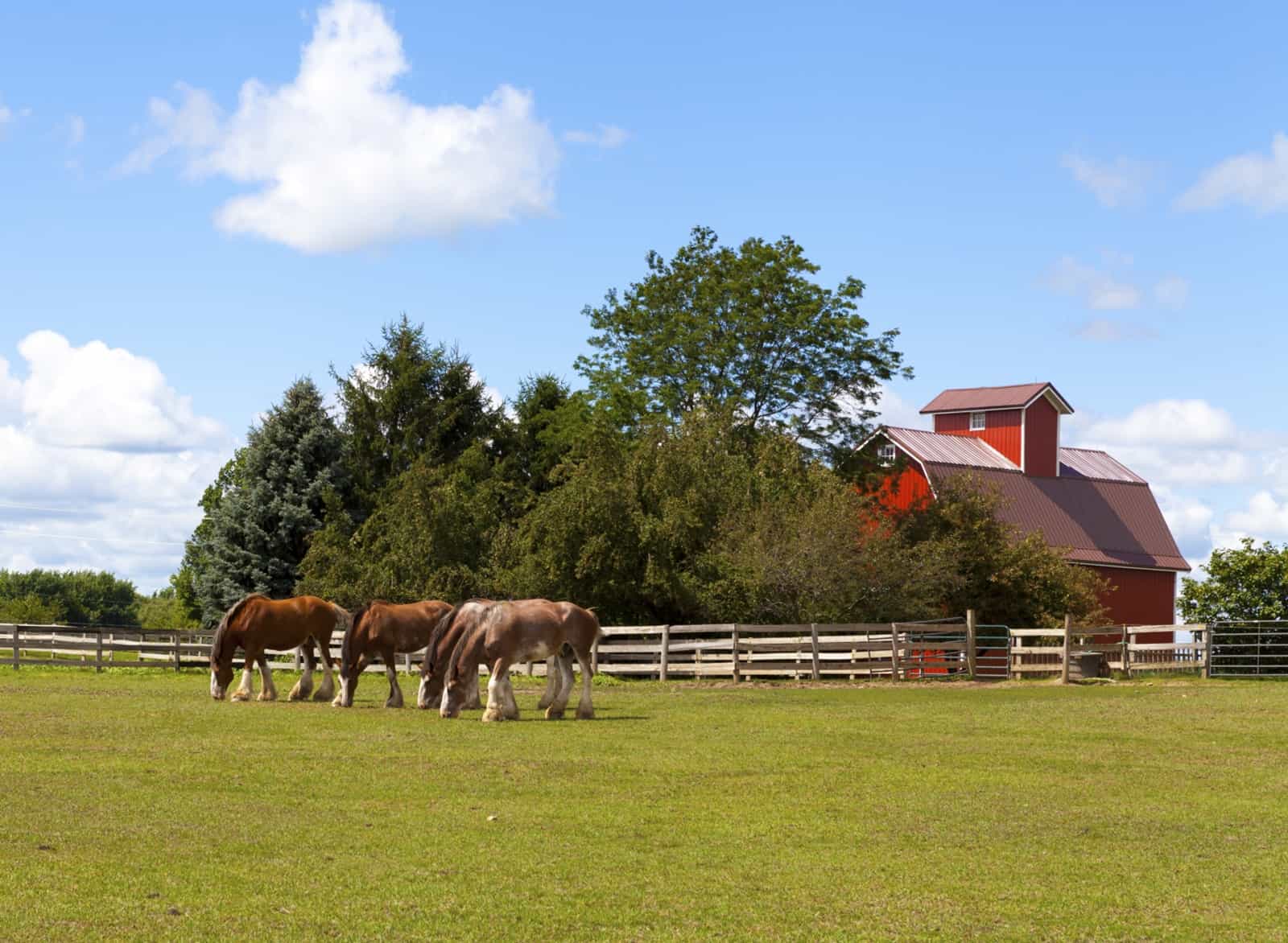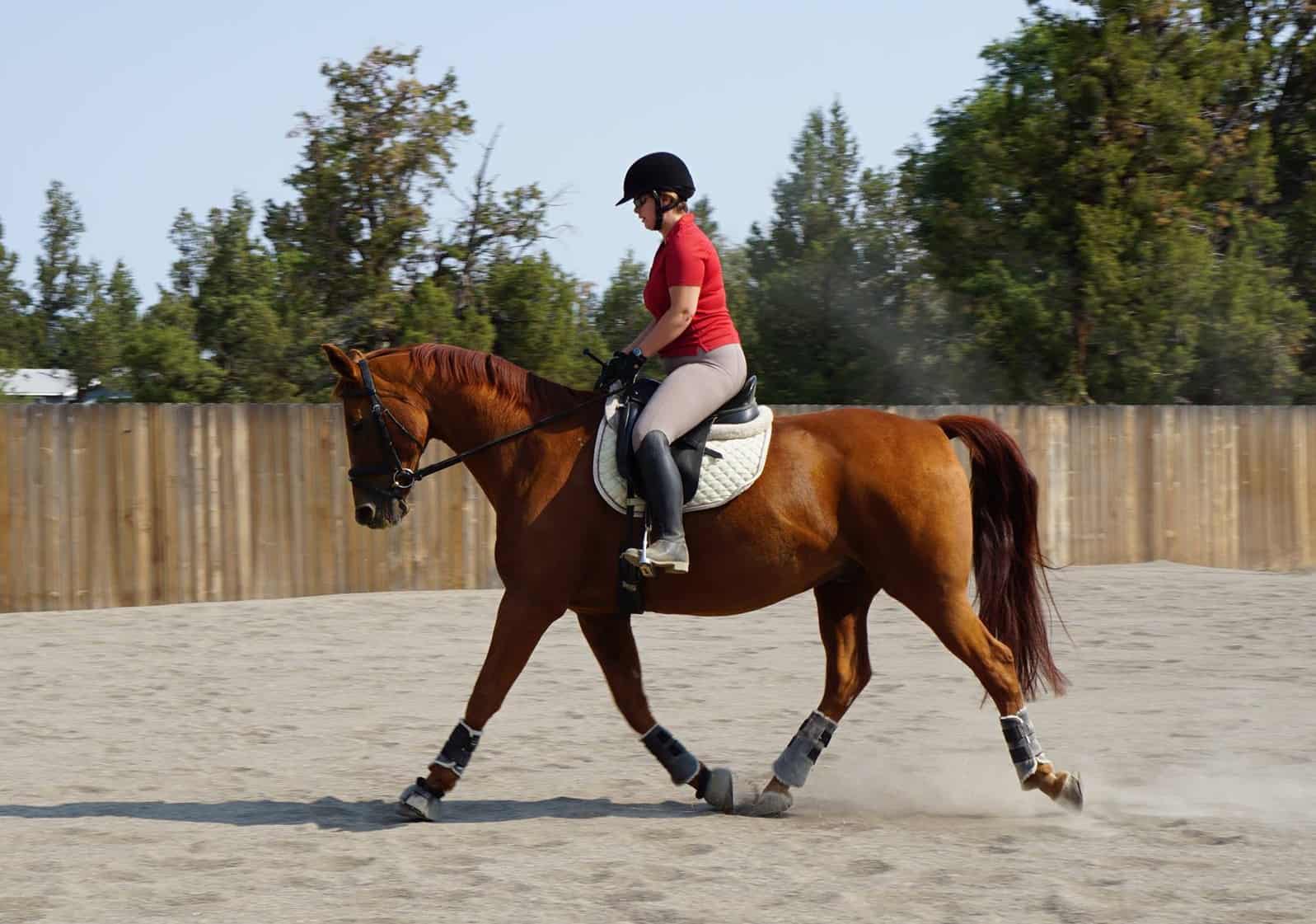10 Easy Earth Day Tips to Green Up Your Horse Life
Small changes in our daily horse care routine can help reduce our horses’ hoofprints on our planet. Here are 10 earth-friendly tips that are easy to instate.
Share
ADVERTISEMENT

Small changes in our daily horse care routine can help reduce our horses' hoof prints on our planet. | Photo: iStock
Today, April 22, is Earth Day. As horse owners, we know management of these large animals impacts the surrounding environment—from chemicals used in pasture maintenance to land use to waste produced by stables. But often, small changes in our daily horse care can help change the big picture and reduce our horses’ hoof prints on our planet. With that in mind, here are 10 earth-friendly tips that are easy to instate:
- Install solar-powered fence chargers. Get your fences off the grid by replacing traditional electric fence chargers with solar-powered ones. Just make sure the charger provides enough juice to keep your entire fence-line hot.
- Set up recycling in the barn. Make recycling water bottles and soda cans easy by setting up designated recycling bins near the trash. Go a step farther by finding out if feed bags (plastic or paper), product bottles (such as shampoo or fly spray containers), supplement buckets, and other disposables are recyclable in your area.
- Keep your truck and trailer in good repair. A well-maintained vehicle is more fuel efficient and runs cleaner than one that doesn’t receive regular care. Keep up on your vehicle’s oil change schedule and make sure tires on both your pickup and horse trailer have proper tire pressure. While you’re at it, make sure your trailer tires are safe.
- Replace incandescent light bulbs. Reduce energy usage in your barn by replacing incandescent bulbs with fluorescents or LEDs (or light emitting diodes). Bonus: Both LEDs and fluorescents last longer than incandescent bulbs, so you’ll have to change them less frequently.
- Conserve water. Have you ever walked away from a filling through only to forget you left the water on? Prevent wasted water and backflow by setting an automatic shutoff timer at the spigot. Also, collect rain in barrels if you have landscaping around the barn to keep watered, or farm implements to keep clean.
- Protect wetlands and waterways. Build fences or barriers around mucky spots, waterways, and wetlands to prevent keep horses away from the area. Doing so can help prevent water contamination from manure and erosion.
- Manage weeds naturally. Get a head start on weed management by pulling weeds and mowing early in the season, before they go to seed. Learn more about proper pasture management in this post by our resident horse keeping expert, Alayne Blickle, and identify common noxious weeds with help from this slideshow.
- Instate natural insect control methods. Simple steps, such as keeping paddocks free of manure and employing fly parasite wasps, can help keep fly populations down. And eliminating standing water will reduce mosquito populations down. For more ideas on managing insects naturally, see this blog post by Blickle about hosting birds near your barn to reduce bug populations.
- Plant a wind barrier around your arena. Shrubs strategically planted along the outside of an arena can block the evaporative effects of wind on arena footing, meaning you’ll need less water to keep your arena dust free. It will also help keep footing in your arena rather than blowing in the wind.
- Stay on designated trails and paths when riding. Wilderness areas include delicate ecosystems. Respect the land you’re enjoying by staying on the trail.
Share

Written by:
Michelle Anderson
Michelle Anderson is the former digital managing editor at The Horse. A lifelong horse owner, Anderson competes in dressage and enjoys trail riding. She’s a Washington State University graduate and holds a bachelor’s degree in communications with a minor in business administration and extensive coursework in animal sciences. She has worked in equine publishing since 1998. She currently lives with her husband on a small horse property in Central Oregon.
Related Articles
Stay on top of the most recent Horse Health news with















